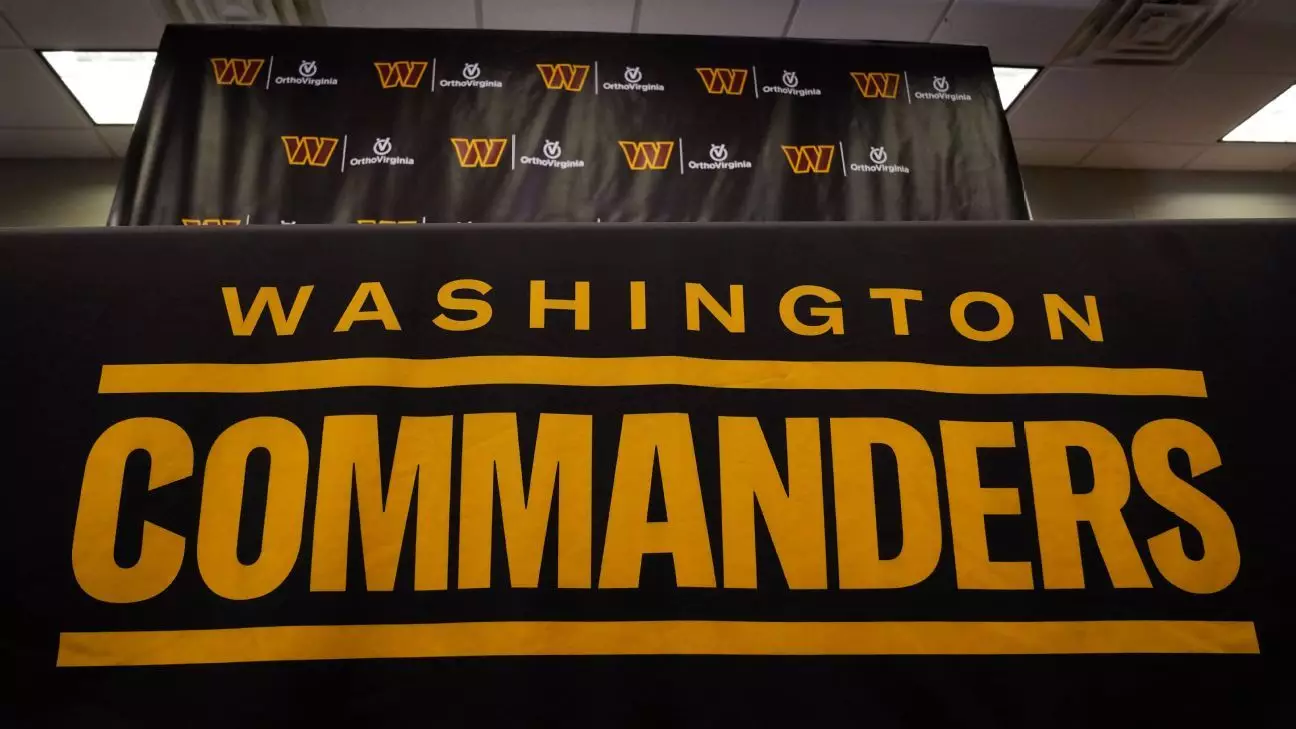The Washington Commanders’ journey to reclaim a prominent stadium location has faced turbulence this week as key legislative provisions falter. Initially viewed as a hopeful endeavor, discussions regarding the team’s return to its historical home at RFK Stadium have been overshadowed by significant legislative setbacks. The most impactful development arose with the exclusion of a vital provision in a current government spending bill, which aimed to facilitate the transfer of federal land to the District of Columbia.
In an unexpected turn of events, the proposed bill, which was anticipated to include an approximate 170-acre transfer of federally held land, fell short of securing this crucial allotment. This exclusion has grave implications for the Washington Commanders, who have long seen the RFK site as a nostalgic and strategic location for their new stadium. The failure to pass this provision leaves the team’s future at RFK in a precarious position; should the bill fail to gain approval, stakeholders may have to postpone further discussions until the next congressional session, prolonging the uncertainty surrounding the team’s stadium situation.
Mayor Muriel Bowser of Washington, D.C., took the opportunity to clarify misunderstandings circulating on social media regarding funding allocations for a new stadium. Following a misinformed tweet from high-profile entrepreneur Elon Musk, who inaccurately stated that the bill included $3 billion earmarked for a new stadium, Bowser reaffirmed that no federal funds were designated for the RFK land transfer or any stadium construction. Instead, the venture appears more focused on addressing urban blight and revamping the district facilities, rather than creating a financial burden on taxpayers.
The Historical Context of RFK Stadium
The RFK Stadium is emblematic of a glorious era for the Washington Commanders, a team that dominated the NFL landscape during its tenure at this iconic venue from 1961 to 1996. Throughout these years, the team not only developed a passionate fan base but also claimed three Super Bowl championships. Since leaving RFK, the franchise has played at its current home in Landover, Maryland, yet many of its loyal supporters remain nostalgic for the days when game days were defined by the energy of RFK Stadium.
This longing for a return to RFK reflects not merely a desire for a new facility, but a yearning to reconnect with an intrinsic aspect of the team’s identity. However, since relocating to Landover in 1997, the Commanders have encountered challenges, both on and off the field. Compounding these challenges is the reality that Maryland has expressed its willingness to retain the team, provided that the Commanders commit to investing in the Landover site. This situation places the Commanders in a delicate balancing act between honoring their past and confronting present-day realities.
Looking towards the future, the fate of a potential new stadium hangs in the balance. Commanders owner Josh Harris has publicly articulated aspirations for a new stadium to be established by 2030, though this timeline lacks any firm backing and is riddled with uncertainties. Without the land transfer, avenues for progress seem limited, and both the team and city officials have announced that reestablishing the RFK location may not be viable for the foreseeable future.
As the clock ticks, the pressure mounts for government officials and Commanders management alike. Mayor Bowser’s comments highlight the urgency of the matter as she recognizes the legislative vehicle available to facilitate the RFK transition is under threat. “I don’t know if there’s another path this session,” she stated with palpable concern. This iterative back-and-forth emphasizes how essential political and community support are for the Commanders to flourish in the new stadium landscape.
Additionally, if the Inclusion of the land transfer has stuttered in current discussions, exploring alternative solutions could prove vital. The Commanders could choose to invest in developing their existing Landover site, thereby ensuring continued community engagement. Yet, returning to their historical roots at RFK remains a tantalizing prospect mired in uncertainty.
The challenges confronting the Washington Commanders as they seek a location to build their future reflect broader themes of negotiation, identity, and the complex interplay between local government and professional sports. With stakes this high, all eyes will remain on Washington as fans, officials, and stakeholders alike await the next developments in this gripping saga.

